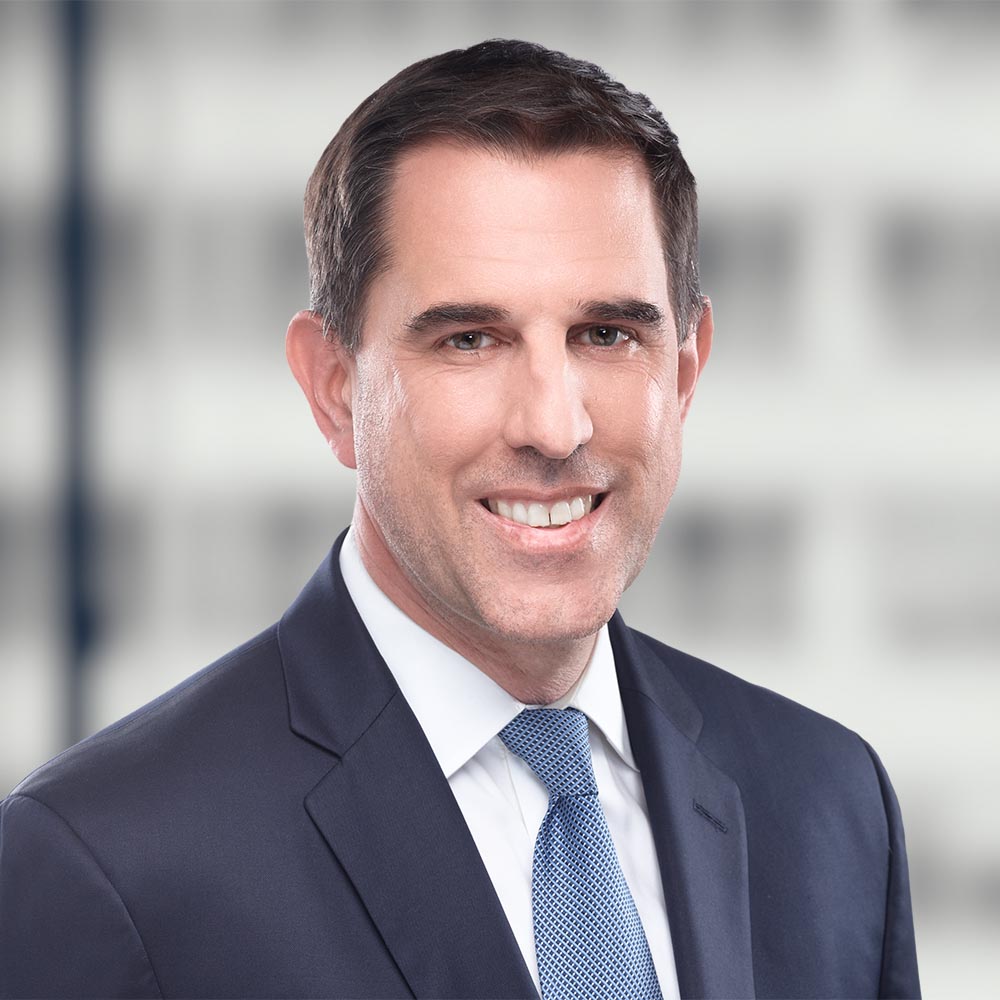
What private equity sponsors need to know about Trump’s second term
Donald Trump’s first term as president was characterized by, among other things, efforts to reduce governmental regulation, build a wall along the U.S.-Mexico border, and protect U.S. trade. As the U.S. prepares for a second Trump Administration, we examine potential policy shifts and their impact on private equity dealmaking in 2025 and beyond.
Changes expected for U.S. antitrust policy
Over the last four years, the Biden Administration has aggressively promoted competition and enforced U.S. antitrust laws, spearheaded by progressives Lina Khan, Chair of the Federal Trade Commission (FTC), and Jonathan Kanter, Chief of the Antitrust Division of the Department of Justice (DOJ). With this in mind, we observed before November’s election that President Trump is likely to pivot from Biden’s approach to antitrust enforcement, if only because his appointees to the FTC and the DOJ would undoubtedly bring a distinct worldview from those currently in charge. Now, as the second Trump Administration comes into view, signs are pointing to a roll-back of President Biden’s antitrust policies on several—but not necessarily all—fronts.
Change will begin at the top of the FTC and the DOJ’s Antitrust Division. The President has named current Commissioner Andrew Ferguson to serve as the next FTC Chair and he will add another Republican Commissioner, Mark Meador, an antitrust lawyer with previous stints at both the FTC and the DOJ. Additionally, Trump has picked Gail Slater, a technology and media policy adviser, to replace Kanter at the DOJ.
Ferguson and the other incumbent Republican Commissioner, Melissa Holyoak, have previewed several policy shifts under the new Trump Administration. Whether that begins by revoking new merger guidelines promulgated by the agencies last year is unclear. The new guidelines largely memorialize Biden-era policy positions on analyzing and challenging M&A transactions, including a focus on private equity and roll-up strategies. The FTC approved these guidelines without Republican support, and Holyoak has said that she “would strongly consider rescinding or revising” them if given the opportunity. Ferguson has taken a nonpartisan tone, noting that the guidelines would become “useless” if they are rescinded each time there is a changeover of parties. In any event, we anticipate that the new administration will pare back the current policy that disfavors negotiated remedies to alleviate competition concerns with pending M&A transactions.
Burdensome changes to the Hart-Scott-Rodino (HSR) premerger filing process, currently effective on February 10, 2025, may be in flux as well. While many believe the revamped HSR forms and requirements ultimately will be adopted, President Trump may broadly freeze all pending administrative rules for 60 days. The new HSR rules would directly impact private equity sponsors pursuing a reportable transaction by requiring the disclosure of their minority investors and limited partners, as well as disclosure of all acquisitions during the past five years of businesses that compete with the target.
Another major FTC initiative—a nationwide ban of most noncompete restrictions on employees—is unlikely to be resurrected after a Texas court enjoined it in August. Although the FTC appealed the decision, there is a good chance that it will drop the challenge, including because Ferguson and Holyoak voted against adopting the ban earlier this year.
For all the differences between the Trump and Biden Administrations, Ferguson’s and Slater’s appointments suggest that the Trump Administration may align with President Biden when it comes to prosecuting antitrust cases against “Big Tech”. In naming Slater, the President announced that “Big Tech has run wild for years, stifling competition in our most innovative sector”, while Ferguson welcomed his appointment with the announcement that “[w]e will end Big Tech’s vendetta against competition and free speech”.
Trade and tariffs in a second Trump Administration
President Trump made it clear that he planned to continue, and possibly expand, the tariff policies enacted during his first term, including higher tariffs on China as well as a new global tariff. Specifically, on November 25, 2024, Trump announced his intention to impose a 10% tariff on Chinese goods and a 25% tariff on imports from Mexico and Canada. While U.S. presidents have broad authority to implement tariff increases, it remains uncertain whether these increases will be enacted and, if so, how quickly and uniformly they will be applied.
If adopted, the proposed tariffs could accelerate what many in the private equity industry anticipate to be a rise in sponsor exit activity. Along with the Federal Reserve’s indication that it will implement two more interest rate cuts in 2025, tariffs could introduce additional urgency to the timing of potential exits for firms with international exposure. On the buy-side, private equity sponsors may prioritize investments in companies that manage their own production, particularly those in domestic transportation and logistics. If tariffs push more companies to source and manufacture products within the United States, these types of investments could become more appealing.
From a due diligence perspective, sponsors will need to carefully assess a target’s supply chain. If major suppliers face increased tariffs, those costs will likely be passed on and increase operating expenses. Ongoing disruptions in global supply chains over recent years have underscored the risks of overseas operations and supply chain concentration, and a new tariff environment could compound those risks.
Impact of expected changes in immigration policy
During the campaign, President Trump reaffirmed his intent to increase deportation efforts, which presumably will lead to increased immigration enforcement activity and a potential reduction in the supply of labor in certain industries, as well as the potential for increased penalties for non-compliance. In this environment, private equity sponsors should aim to ensure that their existing and future portfolio companies have proper employment verification programs (E-Verify), especially in the hospitality, construction, manufacturing, landscaping, general services (auto repair, barber shops, and dry-cleaners), agriculture, and food service industries.
Worsening labor shortages can also disrupt the agricultural supply chain, leading to a decline in food output, which could drive up the prices for grocery chains and restaurant franchises. With that said, the first Trump Administration doubled the number of available H-2 visas for seasonal and temporary workers so the labor cost impact may be mitigated if that policy were resumed.
During the first Trump Administration, more stringent vetting processes for visa applicants were introduced on national security grounds, processing times increased substantially due to reductions in staffing at the Bureau of Consular Affairs, and the overall cost of sponsoring employees for visas and green cards increased due to additional requests for evidence and higher denial rates. To the extent President Trump continues these policy initiatives in his second term, private equity sponsors should consider increased diligence on labor costs, especially when making investments in the healthcare, science, engineering, and technology sectors, which have greater exposure to employees working on H-1B visas.
Overall, it is expected that the number of undocumented migrants and legal asylum seekers will be reduced under the second Trump Administration. However, there is uncertainty within the business community regarding the magnitude of changes in the labor supply and the corresponding impact on labor costs resulting from changes in immigration policy. As such, private equity sponsors should continue to monitor the effects of changes to immigration policy on labor supply and its associated impact on costs.
Preparing for the shift
As Donald Trump returns to the White House with a Republican-controlled Congress, navigating the complexities of an uncertain U.S. regulatory, immigration, and trade landscape will be a critical challenge for deal participants. At Torys, we are well-equipped to assist private equity sponsors and other deal participants in navigating these shifting dynamics, offering insights on policy changes and their impact on deal-making.
To discuss these issues, please contact the author(s).
This publication is a general discussion of certain legal and related developments and should not be relied upon as legal advice. If you require legal advice, we would be pleased to discuss the issues in this publication with you, in the context of your particular circumstances.
For permission to republish this or any other publication, contact Janelle Weed.
© 2025 by Torys LLP.
All rights reserved.




